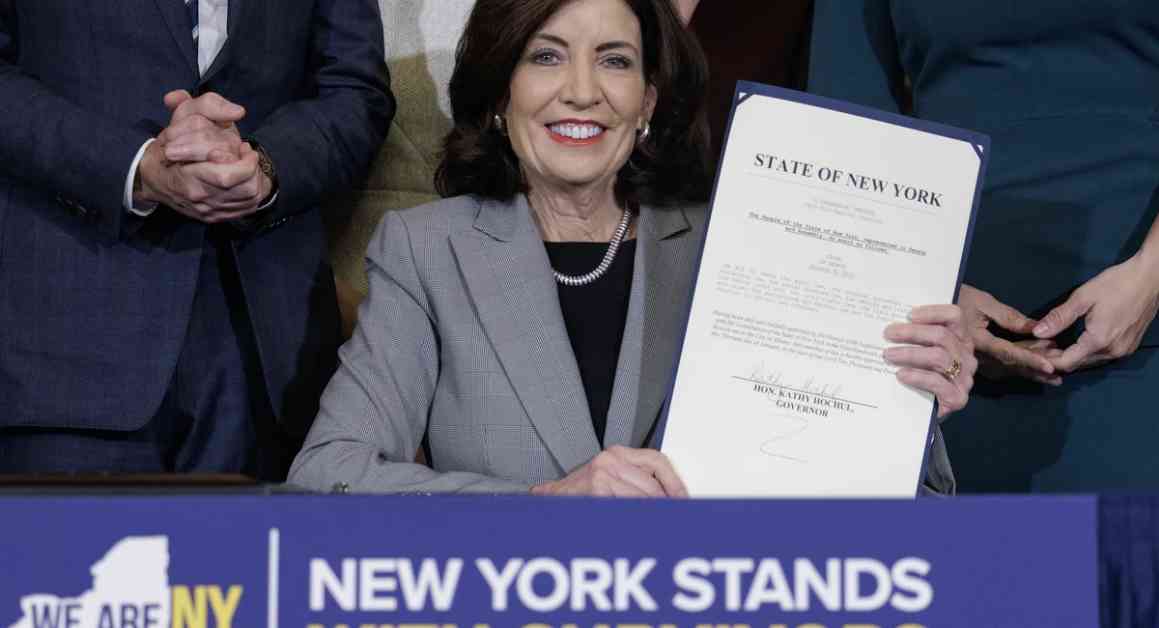New York State Rings in 2025 with New Laws: Minimum Wage Increase, MTA Fare Evasion Fees, and More
New year, new laws! As New Yorkers eagerly await the arrival of 2025, they can also expect a wave of new state measures to come into effect as the clock strikes midnight on December 31st. From a boost in the minimum wage to revamped fare-evasion penalties in the bustling New York City public transit system, there are several changes on the horizon that will impact residents statewide.
Minimum Wage on the Rise
One of the most significant changes taking effect in the new year is the increase in New York’s minimum wage. Beginning January 1st, the hourly minimum wage for non-tipped workers will rise to $16.50 in New York City, Westchester County, and Long Island, up from the current $16. In the rest of the state, the minimum wage will be $15.50, up from $15. These adjustments mark the second of three yearly increases approved by Governor Hochul and state lawmakers in the 2023-24 budget. Looking ahead, in 2026, the wage will climb to $17 in downstate regions and $16 elsewhere. Moreover, starting in 2027, future minimum wage increases will be automatically tied to inflation rates, with potential intervention from the governor’s budget office in times of economic turmoil.
MTA Fare Evasion Fines
New Yorkers who evade subway or bus fares will face updated penalties in the new year. Rather than the current $100 fine per violation, first-time offenders will now receive a written warning. Second-time offenders will be subject to a $100 fine, with the option to reduce it to $50 by paying promptly. Subsequent violations will incur a $150 fine each, and all infractions will be expunged from a person’s record after four years. Participants in the city’s Fair Fares program can benefit from discounted fines, while those who qualify but have yet to enroll may have their fines waived upon enrollment.
DMV Points System Overhaul
New York drivers will face a revamped penalty system under the new DMV points structure, effective January 3rd. Violations will now carry varying penalty points, accumulating over time and potentially leading to license suspension. Notably, driving under the influence and similar charges will now incur 11 points, alongside existing penalties. Leaving the scene of an accident with personal injury will result in a 5-point penalty, up from 3, while illegally passing a stopped school bus will carry 8 points, up from 5. License suspension will occur if a driver accumulates 11 or more points, or 9 points from speeding tickets, within two years, as opposed to the previous 18-month threshold.
Insulin Copay Ban and Prenatal Leave
Beginning January 1st, New York residents on select health plans will no longer be required to pay copays for insulin, benefiting an estimated 60,000 individuals. Additionally, pregnant New Yorkers can look forward to 20 hours of paid leave for prenatal care in 2025. This new policy allows for coverage of various prenatal appointments and procedures, including testing, exams, doctor consultations, and fertility treatments. Pregnant individuals working for private employers, both full-time and part-time, are eligible, supplementing the state’s existing paid family leave program. Public employers in New York generally offer more generous leave policies, while the state Department of Labor predicts around 130,000 pregnant women will qualify annually.
With these new laws set to shape New York’s landscape in 2025, residents are advised to familiarize themselves with the changes and prepare for the impact on their daily lives. As the state ushers in a new era of regulations, the goal is to enhance public welfare and ensure a fair and just society for all.












